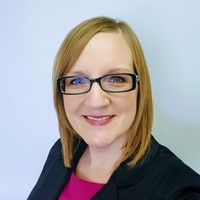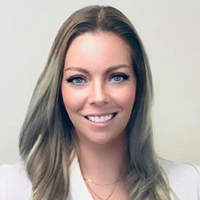If all you know about money is how to spend them, then it’s high time for you to improve financial literacy. Getting smarter about your money means educating yourself, thus forming simple but smart money habits.
We’ve asked the financial experts to share their top tips on how to improve the personal financial literacy. And we’ve got their answers! You can find them below.
But what does the financial literacy mean? Let’s start with the financial literacy definition.
What Is Financial Literacy?

Being financially literace means understanding and being able to manage personal finances efficiently. It’s hard to overstate the importance of financial literacy as it helps to become self-sufficient and achieve financially stable.
According to the 2019 Consumer Financial Literacy Survey, conducted on behalf of the National Foundation for Consumer Credit among 2,017 U.S. adults ages 18+, only about 2 in 5 Americans say that they have a budget and track their spending on housing, food, entertainment.
However, nearly nine in ten Americans are confident that their last financial decision (i.e. buying a car, choosing a credit card, mortgage refinancing) was right.
So, let’s check what the experts say on how to become financially literate.
Experts Opinion

Phuong Luong, CFP
Educator and Financial Planner
The first step is outlining your goals. I often tell my clients that it’s a lot easier to say no when you have a bigger yes.
What do you want your money to do for you? Get organized with your money. Complete your balance sheet, basically a list of all your assets and debts.
Know where your money is going. Track your most recent month of income and expenses, and even better, the last two or three months so you can start seeing some patterns.
Align your spending with your priorities and, if you can, make saving (including paying down debt) a fixed expense.
Get specialized help if you need it around more complex questions like student loans, investing, insurance, tax planning, and/or estate planning.
Clint Proctor
The founder of WalletWiseGuy.com
One of my favorite ways is to subscribe to personal finance podcasts and listen to episodes while I’m at the gym or mowing the lawn.
Another way is to read great books. People can do a simple Google search of “Best personal finance books” and then make a list of the ones that look the most appealing.
Then, I would encourage someone to make a goal to read one book a month.
Finally, I would recommend that people read personal finance content online. But they want to make sure that they’re reading trustworthy sites. Stay away from “get rich quick” schemes. If a blog is trying to tell you how fast you can become rich, they’re probably just trying to line their own pockets.
Stick with sites that balance INSPIRATION with factual INFORMATION.

Daniel Tripp, CFP
Financial Planner
- Take an interest in learning about personal finance.
Make it a goal to read at least one personal finance book a month. Watch online videos about essential financial topics such as savings, investing, utilizing credit, and managing cash flow. Consider signing up for an online training course on the fundamentals of personal finance.
- Use an online account aggregator such as Mint.com or Personal Capital to view all your financial accounts in one place.
When you measure things, they tend to grow. Log into your account aggregation sites at least once a week and begin to track your accounts.
- Notice your spending and savings habits.
Use the online tracking site to observe the inflows and outflows your cash. Login on to your banking site at least once a week to familiarize yourself with your accounts.
- Get control of your debts.
Use the above tools to understand precisely how much debt you have and how much you’re paying to service your debt each month. Learn how interest works. Pull your three-bureau reports and note any deficiencies and dispute any activities that require attention. Learn how credit cards work, and if it’s possible to consolidate your debts to one monthly payment with a low-interest rate.
- Focus on your savings and investing habits.
Make a conscious choice to begin saving and spending, even if it’s a minimal amount each month. Use tools like acorn.com or other savings and investing apps to start small and build stronger money habits.
- Take an interest and learn about your employee benefits.
Pay particular attention to your 401(k) or other employee retirement plans, if offered. At the very least, seek to save up to your employer match each month.
- Maintain a positive attitude about your finances.
Learn to see that financial setbacks are learning lessons, and don’t seek financial perfection, instead seek education and small, focused actions. Utilize technology to track your finances, and feed your mind with quality financial education.
- Ignore the financial news at all costs.
Pay attention to the things that you can control instead of the things you can’t like the stock markets and the economy as a whole.
- Seek a financial mentor.
This can be a friend who is good with finances, a parent, an educator, or a work colleague. Express your desire to learn about personal finance and ask them if they’re willing to mentor you and help learn about what it takes to be successful.
- Find friends who are also interested in learning about their finances and who can be accountability partners as you being to practice stronger financial habits.

Cyrus Vanover
The founder of FrugalBudgeter.com
One of the most important things you can do to keep from overspending is to not compare yourself with others.
Stop worrying about “keeping up with the Joneses” and do your own thing. One of the secrets to true happiness in life is learning how to be be content regardless of your current situation.
So your neighbor just bought a fancy new car. So what? Be thankful that you don’t have to make your neighbor’s monthly vehicle payment. There’s so much more to life than trying to impress others with your material possessions.
You can save a lot of money by finding either cheap or free things to do. Unless you live in a very small community, most towns and cities have free events you can attend.
Instead of attending an expensive concert, for example, why not attend a free class at your library?
Instead of eating out at an expensive restaurant, why not experiment with a new recipe at home?
And instead of investing in a motorcycle, boat, or other recreational vehicle, why not buy a bicycle and take up bike riding? You still get to enjoy the outdoors, and you can get some exercise at the same time.
Instead of attending a pricey four-year college or university, consider attending a community college instead. Community colleges are just a fraction of the cost of four-year schools, and many of them offer degree programs in high-paying careers.
And if you qualify for the Pell Grant, you may receive enough grant money to cover all of your tuition, books, and other expenses, making your associate’s degree completely free.

Ryan Klemm, CFP
Financial Planner at Yeske Buie
Financial illiteracy is huge problem in our nation. The majority of individuals barely have a basic understanding, if that, of simple financial management. It isn’t the individuals fault either, we have no systems in place to teach our citizens how to manage their finances. All that being said, a few tips to increase one’s financial literacy are as follows:
- Read, read and read! Dedicating time to learn financial definitions, cash flow management and investment techniques will help build your financial literacy toolkit.
- Listen to financial podcasts. Professionals are trying to combat this epidemic by providing accessible content in a digestible manner.
- Embrace the tech – use financial management software. These platforms provide a “one-stop shop” when it comes to managing your finances. Half the battle is consolidating everything, and technology has made that infinitely easier.
- Consult a professional! Utilizing an advisor that has a focus on increasing your financial literacy can provide an opportunity to work with someone who’s looking out for your best interest while simultaneously giving you the chance to learn these important skills.

Kentin Waits
Author at MoneyTalksNews.com
Read everything you can (Suze Orman and Robert Kiyosaki are two of my favorites). Ask questions and emulate successful behavior.
Don’t be afraid to broach the topic of money with those close to you. Who’s getting ahead? How are they doing it? What can you learn from them?
Read blogs that engage everyday people — what strategies could work for you? How are others developing smarter financial behaviors? Participate in a community of learners and collaborate.

Amy Beardsley
Personal finance expert
Tackle one topic at a time. Personal finance has many facets. Budgeting, investing, insurance, retirement, credit scores are all an important piece of your financial picture. If you attempt to get all areas of your money in order at once, you’ll become overwhelmed and frustrated. Instead, pick one topic you’re most interested in and start building on that.
Subscribe to blogs you connect with. Bloggers are a go-to resource for the best tips to learn about finances. Find one that speaks your language and you’ll attain first-hand experience of what works (and what doesn’t).
Know where your money is going. Use a free or low-cost budgeting app to track your spending habits. Seeing where your money is going each month can be a huge wake up call. It’s the first step toward understanding your personal finances and can help you get on track to reach your goals.

John Egan
Author at CreditKarma.com
More than anything else, improving your financial literacy involves educating yourself all the time about personal finance.
Read books, read articles, watch YouTube videos and absorb other information about personal finance from credible sources.
In addition, consider taking an informal class at a local college or online that covers how to handle your money. Many of these courses are free or cost very little.
On top of that, you should look into visiting with a certified financial planner or another financial professional to broaden your knowledge about how best to make your money work for you.
In the end, it’s up to you to boost your financial IQ so that you’re wisely spending your money now and that you’ve got a comfortable financial cushion when you’re ready to retire.

Jamie (Gore) Garcia
Financial Planner at Northwestern Mutual
I would say it all starts with a strong budget. I personally have an excel spreadsheet that shows my income, expenses and “left over money”, every time I’m paid.
I plan conservatively. So, I stick to what I call the 60/20/20 rule.
Example:
Let’s say I take home $3,000 twice a month for a total take home of $6,000.
60% – Fixed Expenses = $3,600
This includes:
- Rent/Mortgage
- Utilities
- Phone
- Gas
- etc.
20% – Discretionary = $1,200
- Shopping
- Groceries
- Gas
- Daycare
- etc.
20% – Savings and Investments = $1,200
- Retirement
- Insurance
- Emergency Savings
- Goals.
I typically see people far beyond the 60% for fixed which doesn’t allow for discretionary or savings. It’s just as important to pay ourselves (Saving and Investing) as it is to pay our mortgage. I always start my conversations here to see what’s most important to my clients.
Once they see this breakdown in cohesion with their budget sheet, it’s a huge eye opener and really brings their financial picture to life. It also provides a great amount of clarity as to where money is going. After all, don’t we all wonder that?

Sandra Parsons
Personal finance writer and former banker
The best way to improve financial literacy is to read (and listen to) as much as you can about personal finance.
Read books and personal finance blogs before bed. Listen to audiobooks or podcasts while you’re driving, cleaning, and walking your dog. Look for ways to fit it into your day. Many people think they don’t have time to pursue financial knowledge, but that isn’t true when you look for ways to be efficient with your time.
You can improve your financial literacy by talking to people who have it divd out. You learn so much by surrounding yourself with people who inspire you. Pay attention to their habits and ask questions – everybody has to start somewhere, and most financially savvy people are happy to share their best practices with their friends.

Lou Nihoul
Vice President at Virtual Financial/Wealthwave
Everyone says have a budget – great advice but… You need to adhere to the budget on a daily basis, and that is the difficult part. The best way is to find a partner you can be accountable to – ideally you’d be accountable to each other. Most people start with good intentions.
Second, prepare for the unexpected. Life does not adhere to your budget. Your budget must have dollars to build an emergency fund. There are little emergencies like a dead car battery, but what about a major emergency that might cause you to miss work for 6 months? GoFundMe is not the way to go.
Third, when you invest remember Rule 1: Don’t lose money. Rule 2 is Never forget rule number one. Investing is best done through a financial planner who is looking out for you.
Last, if you use credit cards and can’t pay the entire balance each month don’t use them. Switch to a debit card. The banks love people who have credit card balances.

Robyn (Kurdek) Conti
Personal finance expert and writer
- Learn everything you can about personal finance. Read books and blogs, and educate and empower yourself. Knowledge is power, and the more you know, the more prepared you’ll be to make smart choices when it comes to your money.
- Pay yourself first. Everyone says this, but it really is the best way to make sure you’re saving for your goals. If you try to save after you’ve paid everyone else, it’s less likely that you’ll actually do it. Put another way, paying yourself first ensures that you’ll set money aside, then pay your bills and live on whatever is left. Plus, it makes you feel good to know you’re doing something for yourself and making sure you’re saving toward your goals.
- Get a mentor. I think this is an often-overlooked part of financial literacy. In school, we have teachers to guide us and help us learn. Why shouldn’t it be the same with financial education? We can learn on our own (per #1 on this list), but we learn faster when we have a knowledgeable teacher to guide us and help us focus. More importantly, having a mentor gives you the opportunity to learn from their experience. It also provides you some accountability to reach your goals, which increases the likelihood that you’ll actually achieve them because you have someone else who’s going to make sure you do what you say you’re going to do.
- Contribute to your retirement plan at work as early and as often as you can. I wish I’d understood the power of compound interest 20 years ago. I would have contributed to my retirement plan consistently, without fail, no matter what. I didn’t recognize the importance of it, and how a little savings back then could add up in a big way in the future. I think teaching people to save while they’re young, and helping them understand the power of how their savings grows over time is the single more important lesson we can pass on. I always say, if I could go back and tell my 24-year-old self one thing, it would be “save as much as you can for retirement RIGHT NOW! You’ll thank yourself later, trust me.”

Madeline E. Maloon
Financial Planning Executive at California Financial Advisors
3 Financial Tips for Recent Graduates
Becoming financially literate is an ominous task due to the immense amount of information available for us to learn. This is especially true for recent graduates, who are just starting to make, and spend, their money for the first time.
They are fresh to the world of finance and can hopefully develop a few good habits early on. Here are three basic tips to get recent graduates ready to conquer their finances:
Never Say “No” to Free Money
The first tip I always tell recent graduates is to capitalize on the opportunity to get “free” retirement money from your company. If your company offers a 401(k) match, they are giving you a specified percentage of your income and depositing it into your 401(k).
The key to getting this match is you must elect to contribute a portion of your salary to the 401(k) as well. Your company will specify the percentage of your salary you must contribute in order to get the matching percentage.
Although budgets may be tight for recent graduates, a 401(k) contribution, especially enough of a contribution to maximize the match, is not the place to cut your funding.
Attack Your Debt
When leaving school, many people are bogged down with student loans, credit card balances, car payments, and more. These payments can be very expensive and can add a lot of stress to your budget. I recommend to my clients that they use what I call a “Debt Snowball Strategy”. “The Debt Snowball Strategy” starts with you putting any extra money you can wrangle up each month and applying this money to your highest interest rate loan. Let’s call this loan, Loan A.
Because of the extra money you are paying towards the principal of Loan A, you will see the balance drop much quicker. When you finish paying off Loan A, you can then take the amount you were paying towards it, the original payment + the added monthly amount, and add this amount to your payment on your second highest interest rate loan, Loan B. This pattern continues until you eventually end up paying off all your debts.
Don’t Blow Your Budget
I have seen many recent graduates who are so excited about their first job, and paycheck, that their instinct is to go spend the money right away. Because of how tempting this paycheck money is, I recommend recent graduates quickly come up with a monthly budget. This budget should be realistic, so you can stay in your budget each month.
In your budget, you should consider lifestyle expenses, car expenses, rent/mortgage payments, retirement account contributions, savings account contributions and insurance expenses you may have. Having this budget is the key to making sure you can stay on track for your future financial goals.

Veronica Ott
Finance & Accounting Writer
Financial literacy is defined as one’s ability to understand how money works. More specifically, how an individual earns money, spends money, manages money and invests money. Despite the fact that everyone comes face to face with money on a daily basis, many are not as financially literate as they could be. Money impacts your life everyday – knowing and learning more is definitely important!
Contrary to popular belief, improving financial literacy is as simple as educating yourself by reading and being more mindful of your finances on a daily basis. Based on what you know and learn, you can make small, yet powerful, changes to your personal finances. Below are three tips you can start using today to improve your financial literacy.
Create a Financial Calendar
Creating a financial calendar is exactly what it sounds like, marking the dates of all the income you earn and all the expenses you incur. If you know what is happening with your finances and when it will happen, you can make better financial decisions. For example, if you know your rent is due tomorrow, maybe don’t have a shopping spree at the mall today!
Creating a financial calendar is particularly easy in this day and age because nearly everyone has access to a mobile device with a built in calendar. You can put all of the dates you get paid and owe money into your phone with reminders. Talk about convenience! Alternatively, you can go old school and use a paper calendar. To each their own!
Move from Credit to Cold Hard Cash
In today’s world, buying has become easier than ever with the advancement of technology. In fact, it has become so easy that most have forgotten to even think before they buy.
Studies have shown that how we pay for things will change how we feel about the purchase. When consumers pay with a credit card, there tends to be less guilt and pain related to the purchase. This is because there is a significant amount of time between the actual purchase and when the money is owed. On the other hand, when consumers pay with cash, the burden of the purchase is immediate. In addition, avid credit card users tend to spend more frivolously compared to cash users.
To summarize, credit card users tend to overspend and purchase unnecessary items because there is a delay between the purchase itself and the time the money is owed. By switching to cash, you will think more carefully about your purchases and be less likely to overspend. Try switching to cash, instead of card, today to see if it will give your wallet a break!
Write Out Your Financial Goals
Part of being human is having a dream. Perhaps you want to go to school, take a trip around the world or buy a home – and the list goes on! Writing out those dreams (and the dollar value attached to it) will help you turn your dream into a reality.
Afterall, we all have lots of ideas, concepts and thoughts bouncing around in our heads. Until we get it out of our heads, it will remain a dream, not a reality.
A financial goal could be as simple as “create an emergency savings fund” or as complex as “save $50,000 for school”. Whatever it is, write it down and put is somewhere where you will be constantly reminded of it, such as on a vision board in your home or as your phone background.
Being frequently reminded of your financial goals will help you stay on track and make better financial decisions on a daily basis.
The road to improved financial literacy can appear perplexing, daunting and intimidating on the outside. On the inside, financial literacy is really about making better financial decisions for yourself on a regular basis. Another thing that people don’t realize is financial literacy is personalized, what works for you might not work for someone else.
Taking little steps to better YOUR finances is the only way to improve financial literacy. Above are tips and tricks that helped me become more financially literate, but don’t be afraid to experiment with your finances to find your own tips and tricks!
